Wil-son!!!!
Aggh. Hack Ptui. I went down to Lake Union tonight to practice kayak self-rescues with a few other guys. I’ve never been capsized involuntarily, but my last class in this was over two years ago, and I’ve been a little concerned about being able to do it in dire circumstances.
It involves rolling the kayak 180 degrees, exiting the boat while you still are able to hold your breath, all the while holding onto the boat because it’s your only friend in the water. When kayakers drown, it’s the boat they find, not the body.
That’s only the first part. Because a kayak rolls so easily, you can’t simply grab the side and haul yourself back into the cockpit. You detach the inflatable paddle float that you hopefully are carrying in an easy-to-reach place on your deck, pull it over the paddle blade, and inflate it. This presumes that your paddle didn’t get away from you during the submersion and float away in the current, like Wilson did from Tom Hanks in Castaway.
Using the paddle with attached float as a sort of outrigger to stabilize the kayak, you haul your wet and freezing ass onto the rear deck, then carefully slip one leg, then the other, then the aforementioned sorry ass into the cockpit, all the while being careful not to shift your weight to the side of the boat not supported by the paddle outrigger, or you’ll roll right back into the water.
Once in the boat and reasonably balanced, you ascertain that the boat is nearly completely submerged because IT’S DAMN NEAR FULL OF WATER. You reach back to the deck and pry loose the bilge pump that you usually forget on your way out the door on so many kayak expeditions, and proceed to pump water furiously over the side in hopes of getting your bow horizontal. Although each stroke with the pump seems to eject a Guinness-sized pint of water (often the same color, with the same sudsy head, the same shade of viscous fluid that you’ve been horking out your nose and mouth since you went over), you notice that your sea kayak, whose capaciousness you were formerly wont to celebrate, holds a fuck of a lot of water.
On the bright side, the energy expended on pumping gradually quells your hypothermic shivering, and by the time the boat is empty, you’re warm again but probably too exhausted to paddle to shore, which is not possible anyway because while you were concentrating on pumping, your paddle floated away on its journey to a rocky beach in the Aleutians and the perplexed stares of Stellar’s sea lions. In this most inopportune moment, you recall deriding the Safety Sams who strapped spare paddles to their decks. Yeah, the same guys who always bring extra food and water, have safety flares in easy reach, and soccer whistles around their necks to summon help, the guys now slurping hot chowder and Hale’s Pale Ale in the tavern in the harbor, wondering if enough time has elapsed that they should call the Coast Guard about you. “Let’s give it another pitcher,” they agree, as your shivering recommences.
I’m glad I got my butt out and did this tonight, despite having one ear solidly plugged with water, and the creeping paranoia about coliform levels in our jewel of an inland sea. I need to repeat it far more often, and in colder water and less beneficent wind and wave conditions.
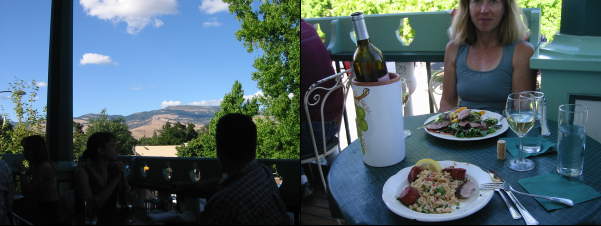

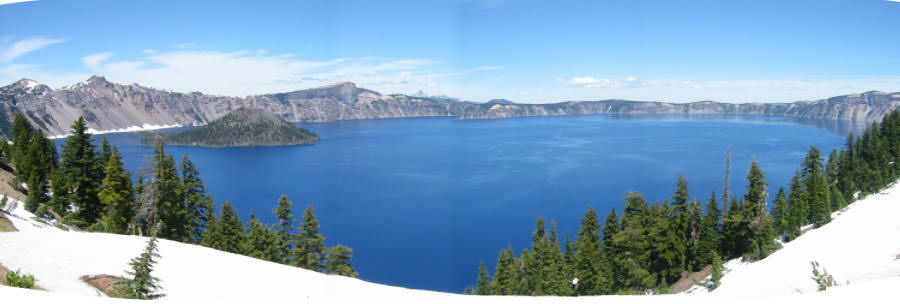
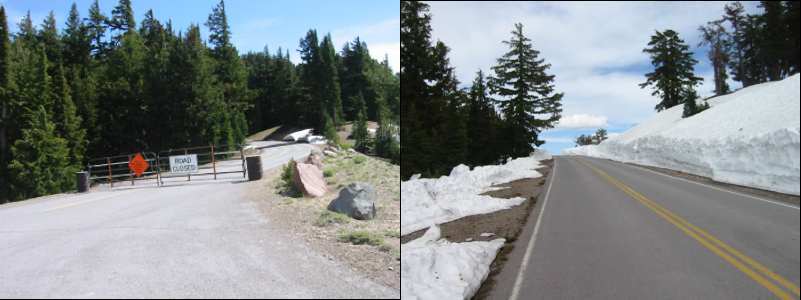
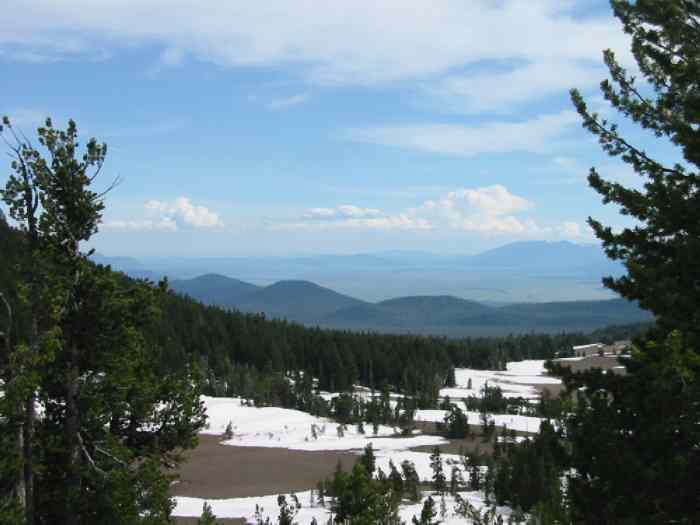

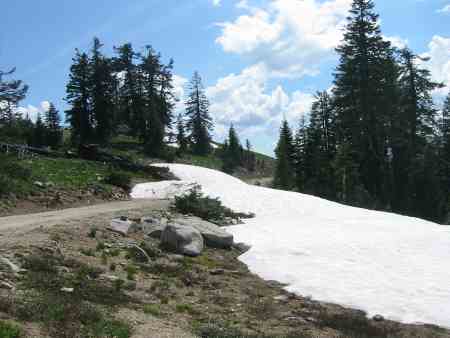 For our outing on Thursday, we picked a hike along a segment of the
For our outing on Thursday, we picked a hike along a segment of the 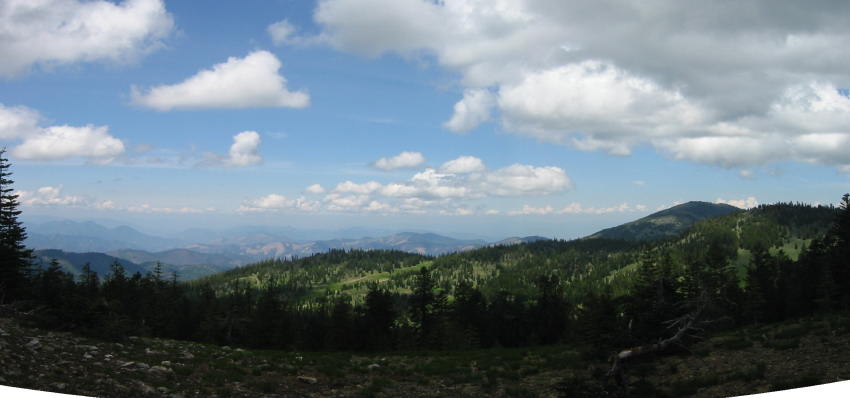
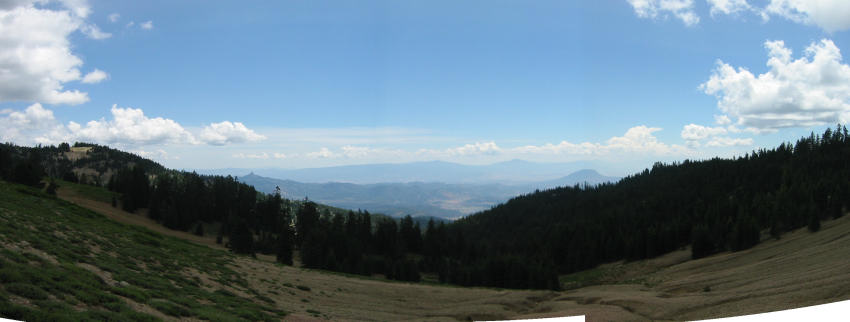
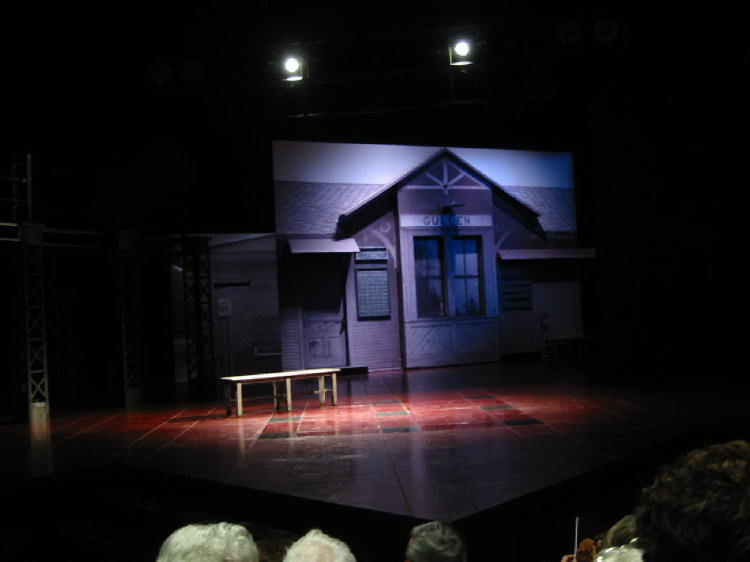 The Visit, by the Swiss Friedrich Durrenmatt, is reminiscent of a Twilight Zone episode, or of Shirley Jackson’s The Lottery. A formerly prosperous town, Gullen, has fallen on hard times as commerce has dried up and trains have ceased making scheduled stops.
The Visit, by the Swiss Friedrich Durrenmatt, is reminiscent of a Twilight Zone episode, or of Shirley Jackson’s The Lottery. A formerly prosperous town, Gullen, has fallen on hard times as commerce has dried up and trains have ceased making scheduled stops. 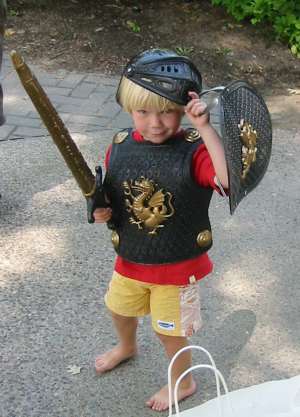 Since we had two plays to see Wednesday, one at 2:30 and one at 8:30, we didn’t have enough time to drive off to an elaborate outdoor adventure. Instead, we walked around the upper reaches of town with the goal of reaching the top end of Ashland Creek, and walking along the creek to arrive at the theatre in time for our first play.
Since we had two plays to see Wednesday, one at 2:30 and one at 8:30, we didn’t have enough time to drive off to an elaborate outdoor adventure. Instead, we walked around the upper reaches of town with the goal of reaching the top end of Ashland Creek, and walking along the creek to arrive at the theatre in time for our first play.